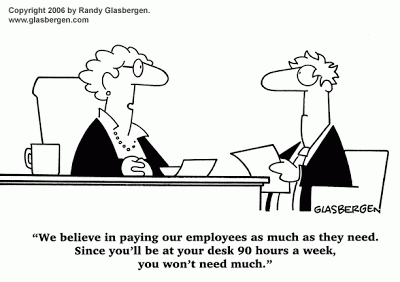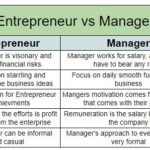Things that prevent us from earning more
I’ve been running a technology incubator for a few years now. We have people on staff (employees) and independent consultants and entrepreneurs who are doing their thing. I end up comparing them in terms of their net earning, their attitudes and their beliefs. Below is a little synthesis of that.
- Higher Risk = Higher Reward: They are proportional. The higher the risk, the higher the reward. Most of us in steady, low paying jobs are either unaware of the fact or don’t believe it – generally looking at edge cases who had a steady corporate job and still made it. If you step back, and look the business world as a whole, higher risk = higher reward. Period.
- Risk Aversion: For various reasons we all react differently to risks in life. Some of us are motivated by it, get their thrills from it (very dangerous) while others panic, get depressed or get paralyzed. If you have a tendency to be averse to risk, you will find it hard to earn higher (point above).
- Incorrect evaluation of risk: A related problem here is the inability to evaluate risk. Most of life is very complicated. I once asked a colleague how the opportunity cost of loosing a consulting opportunity was compared to the cost of keeping a resource on the bench. It took me a while to explain that (in our parts of the world) you can have a resource be non-billable for 6 mo in a year and still not loose money. In many ways, this is related to the aversion of risk : because we react negatively to risk, we don’t rationalize it enough to understand it. In my experience what many people consider to be risk really isn’t when you are done doing the math.
- Fixation on loss: In most employee vs entrepreneur scenarios I find people making a comparison between how much they could earn on the job vs. if they pursued a business idea. Then they think about all the ways they would not get to that pot of Gold. Ironically, that’s the very attitude that keeps you from getting to it. I think your perspective changes completely when you think about “How much can I possibly loose” vs. “How much can I gain”. If you aren’t crashing and burning, its probably worth doing. I think the point they are missing is that the fear of pain is actually worse than the pain itself. Its this fear that makes it hard to make the right decisions.
- Work-life balance: Most people with an employee mindset feel that their “circumstances” don’t permit them to take on a higher risk position. This can be true based on who you are but its important to keep in mind that inflation is a fact of life, and if you aren’t moving forward, the cost of things will just pass you by and it won’t be long before you find yourself complaining about how a lot of things now seem out of reach.
- Unsure of abilities: Employee minded people are generally more unsure of their abilities than entrepreneurs. Its not that they aren’t as good, just more unsure of it. It boils down to a positive self-image and self-confidence. Belief in ones ability to achieve a certain goal (“anything” as the entrepreneurs call it) is central to our perception of risk on point 1.
- Not interested in Power, Independence or Money: While perfectly natural things, I find employees showing a total lack of interest in these whereas they are primary motivators for entrepreneurs. It seems almost by classical conditioning that this attitude develops. You come from employee parents so you inherit these or you have spend a lot of time in a corporate environment that breeds this attitude to maintain control.
- You know how this will play out: You know you aren’t an entrepreneur when you are sure how things will play out. They will end up the worse possible way the way they ended up for that friend of yours who crashed and burned. You are convinced that there is no better way of doing it and you feel if this was a good idea, everyone would have been doing it by now


![salary[1]](https://alliedc.com/wp-content/uploads/salary1.gif)





